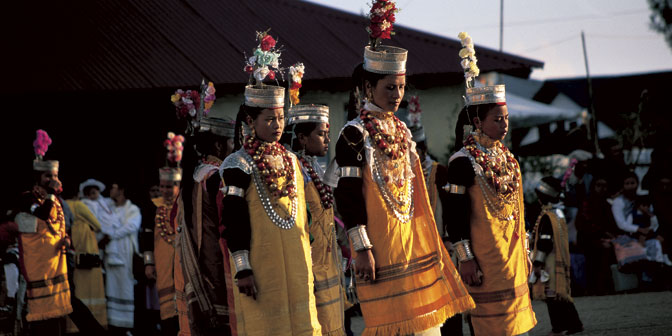
Celebrating Women as Powerful

Ka Pomblang Nongkrem - Shillong, India
This is an excerpt from the book Celebrating Women.
This year, 2001, is the Year of Women's Empowerment in India, but Khasi women already have more power than many women in the world.
Women here are economically active until they are very old.
Children take their mothers' clan names and descent is linear from mother to daughter.
The youngest daughter becomes the custodian of her family's property (the eldest daughter assumes that responsibility in the ruling family).
A High Priestess is responsible for the community's spiritual life. Her brother or son serves as King and is addressed by the honorific "Mother-Father".
The woman is the guardian spirit of each house; the cooking and eating area, which is considered the sacred, is where religious rites occur.
Grooms move into their mother-in-laws' homes.
The Khasi's omniscient, omnipresent, omnipotent God is addressed both as “she” and “he.”
